11. “I am the subtitle?”: Using COCA to explore false cognates between Portuguese and English
Bárbara Martins; Eduarda Garcia; Pedro Ávila; and Catie DeRienzo
Bárbara Martins
Undergraduate student at Federal University of Rio Grande do Sul
Catie DeRienzo
Undergraduate student at Montclair State University
Eduarda Garcia
Undergraduate student at Federal University of Rio Grande do Sul
Pedro Ávila
Undergraduate student at Federal University of Rio Grande do Sul
Goals: For students to be able to develop understanding of examples of false cognates so that they can form sentences correctly.
Audience: Beginners of English in English courses
Duration: 20-30 minutes
INTRODUCTION
All language learners have at least one story of a conversation break because of false cognates. Such mistakes can also happen when we are watching movies, TV shows, or listening to songs. For example, in Will Smith’s “I am the Legend” (2007), Brazilians understood the title of the movie as “I am the subtitle”, because in Portuguese the word legend is closer in spelling and sound to legenda (subtitles) than to lenda (legend). These words that share the same root but have different meanings are known as false cognates.
False cognates can be hard for learners of English. In general, students intuitively translate cognates based on their first language, which leads to communication breaks and comprehension failures. Learning about these words and understanding their real meaning is essential to improving one’s English skills.
We hope that this activity will foster the ability to distinguish false cognates and real cognates using corpus tools. In this unit, we selected a list of false-cognates between English and Portuguese, but the same procedures could be reproduced with other languages and/or other words. For the lesson activity, we developed a game where students practice the use of the words selected.
STEP 1: CORPUS ANALYSIS
In this activity, we used the Corpus of Contemporary American (COCA) English. This is probably the most comprehensive tool to use when searching for language variation in English. We also searched for the chosen words in etymology dictionaries to learn more about their origin and to see how and why these words have similar spellings, but different meanings. This is an optional step that teachers can take if they want to explain the origin of a word in class.
Since false cognates differ in meanings, rather than in form, it is essential for us to analyze their context of use and their frequency. By looking at the sentences that these words occur in COCA, we can check whether they share the same meaning with their cognates or not.
For this demonstration, we selected three words in English that are false-cognates with words in Portuguese (curse, parents, and pretend). After choosing the words, we used the word feature in COCA to search for these words. The word menu outputs a summary of findings that includes the function chart, thesaurus, collocates, and concordances.
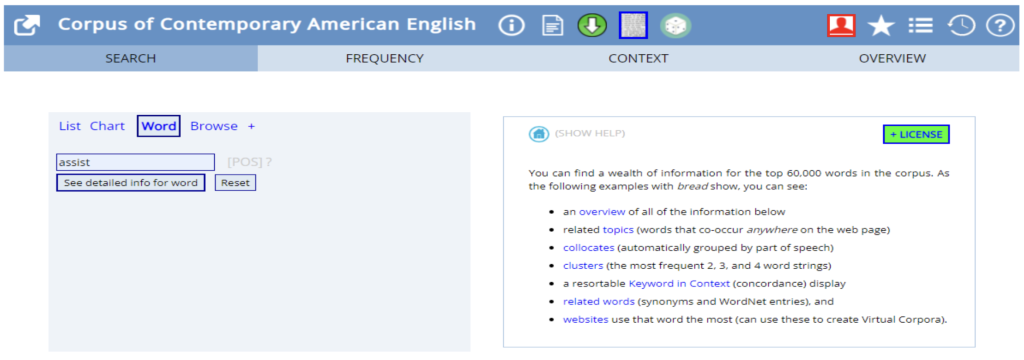
Figure 1 – Example of how to use the word option on COCA
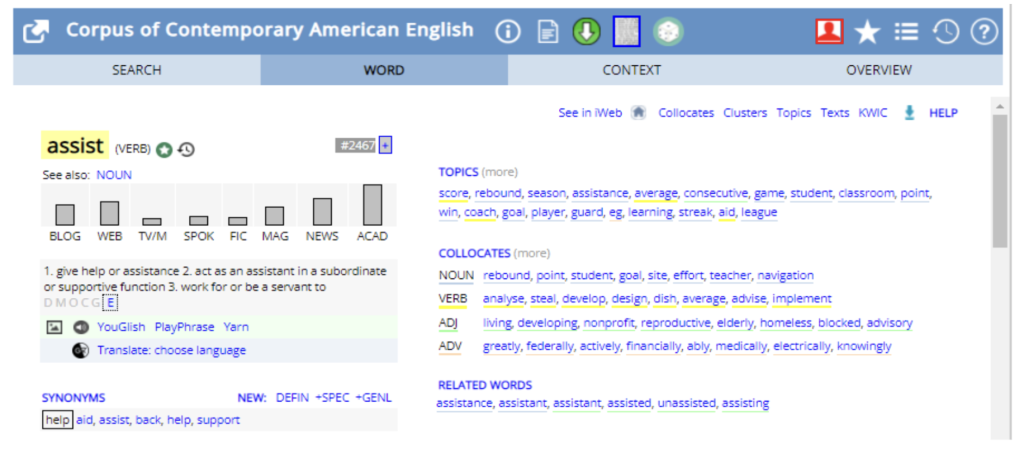
Figure 2 – Example of output screen for the menu word
The last box in the “word” output shows concordance lines. Concordance lines show sentences where the search word appears. Reading the use of the word in contexts allows us to understand the real meaning of the words.
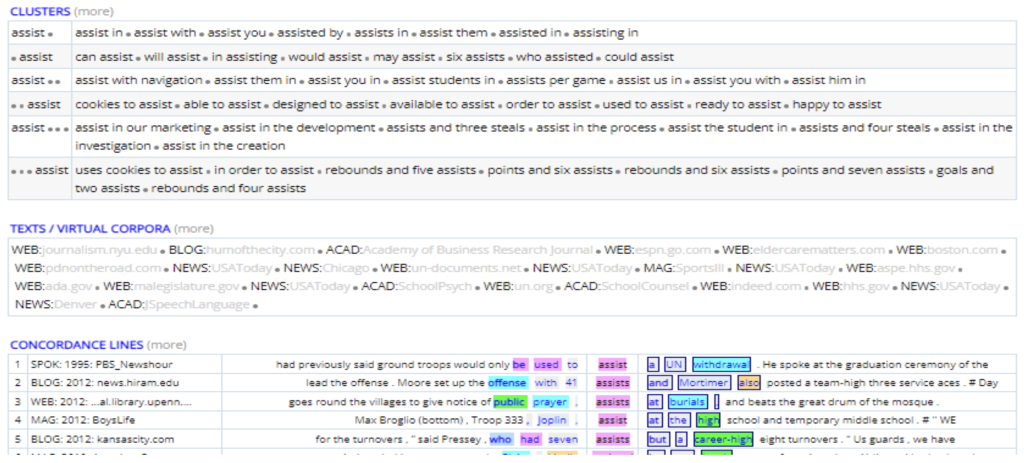
Image 3 – Example of output screen for the menu “word”
The following bullet points highlight some of the major findings of the corpus analysis. The goal of this summary is to give teachers some ideas for what could be discussed in class based on the concordance lines and the collocates of each cognate word.
- CURSE
Why is this word known as a false cognate?
‘Curse’, in Portuguese ‘maldição’, is similar to the Portuguese word ‘curso’, which means ‘course’.
Definition: utter obscenities or profanities.
Words at left: to, I, she, he, will, you, are
Words at right: with, you, by, at, him, me, his, to
Phrases:
‘’… any position to curse his wife’s forgetfulness.’’
‘’… I curse the Capriati men!”
“… and begins to curse.”
“… he cursed at his useless internal rambling…”
“You are cursed to the and of your days”
- PARENTS
Why is this word known as a false cognate?
Parents’ means ‘pais’ in Portuguese, but is very similar to the Portuguese word ‘parentes’, which means ‘relatives’.
Definition: father or mother
Words at left: for, your, with, other, by, from, one, my, her
Words at right: who, have, had, in, do, company, can, would
Phrases:
‘’… of my parents and my brothers…”
“…when she visited her parents at West Point.”
“… a support group for parents of slain children.”
“… and your parents preferred the company of adults”.
- PRETEND
Why is this word known as a false cognate?
‘Pretend’ means ‘fingir’ in Portuguese, but is very similar to the Portuguese word
‘pretender’, which means ‘intend’.
Definition: Simulate, imitate.
Words at left: just, I, not, you, he, can.
Words at right: it, they, we, like.
Phrases:
“… then we won’t talk for a week and pretend it never happened…”
“… And because this is England, everyone pretends not to notice…”
“… because everyone’s pretending she’s a part of show business…”
STEP 2: PRACTICE ACTIVITY
Read the following sentences and determine if each underlined word has a cognate or a false cognate in Portuguese. If it has a cognate, write the word in the Cognates bubble. If it has a false cognate, write the word in the False Cognates bubble.
- Listening is an important communication tool.
- I realized we were still worlds apart.
- Your bread and chocolates were very tasty.
- This album was recorded in six days.
- The ring will carry my curse forever.
- Her family now pretends she never existed.
- The dentist examined my teeth and said everything was fine.
- Her adoptive parents were both theatrical stars.
- Oslo is very much a capital city.
- Students may enroll in one class each week.
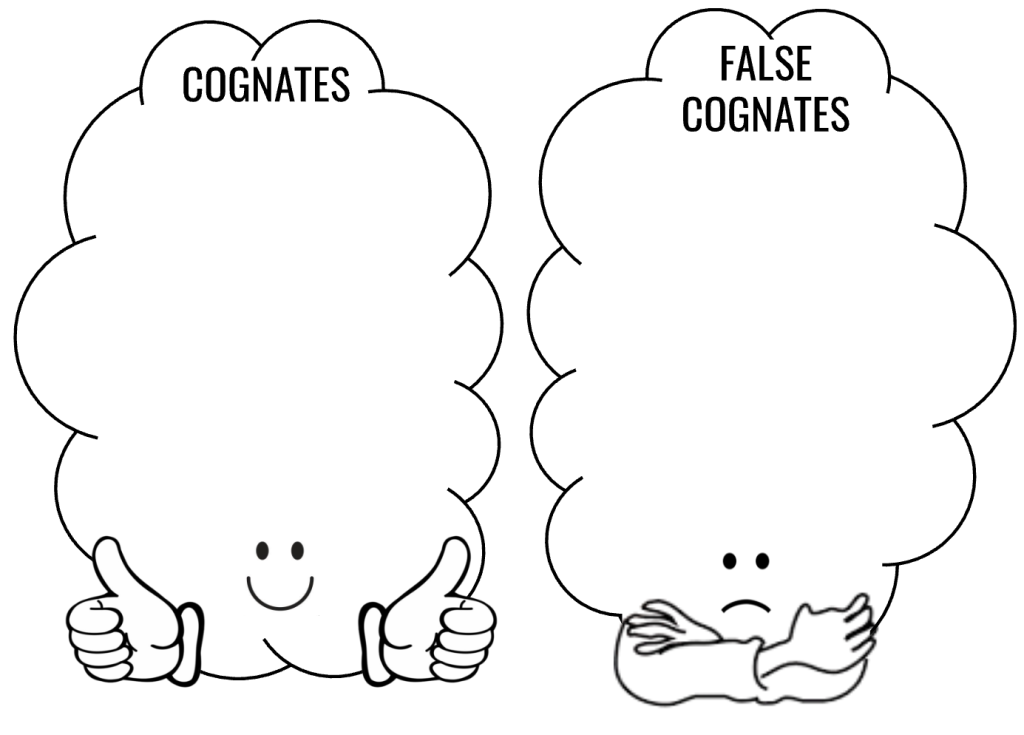
Answers
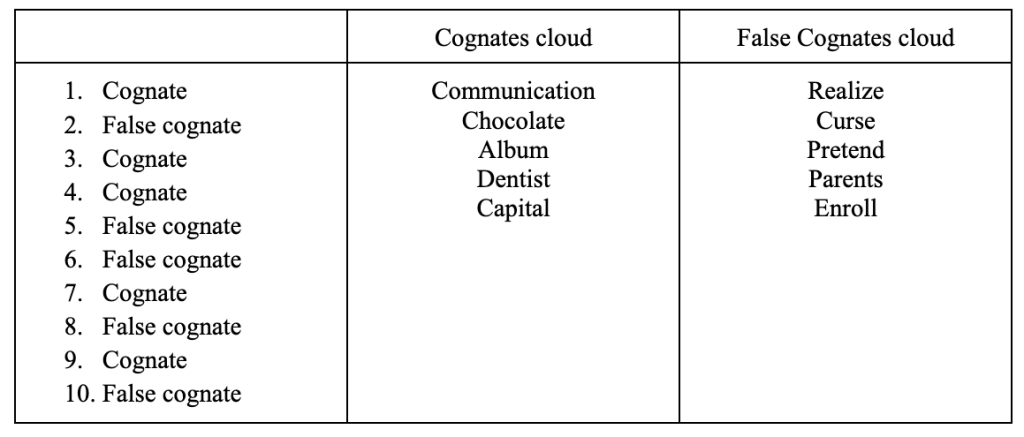
Ávila, P., DeRienzo, C., Garcia, E., & Martins, B. (2023). “I am the subtitle?”: Using COCA to explore false cognates between Portuguese and English. In L. Goulart & I. Veloso (Eds). Corpora in English Language Teaching: Classroom Activities for Teachers New to Corpus Linguistics. Open Educational Resource. Montclair State University.
